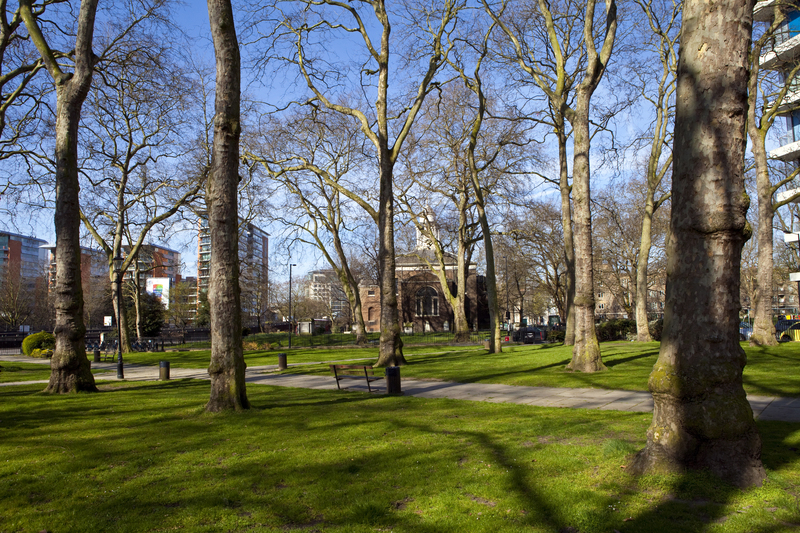Nurture Your Green Thumb: 9 Essential Gardening Tips for Beginners
Posted on 14/08/2025
Nurture Your Green Thumb: 9 Essential Gardening Tips for Beginners
Gardening is a rewarding and therapeutic hobby that allows you to connect with nature while beautifying your surroundings. But, as a beginner, cultivating your first garden can seem daunting. With the right advice and practical knowledge, anyone can foster a thriving garden--from lush flower beds to productive vegetable patches. In this guide, we'll reveal 9 essential gardening tips for beginners to help you nurture your green thumb and grow your gardening confidence.
Why Start Gardening?
Before we explore the essential tips, let's understand why gardening is so beneficial:
- Physical Health: Gardening is excellent exercise, promoting flexibility and strength.
- Mental Wellbeing: Tending plants is proven to reduce stress and boost mood.
- Environmental Impact: Growing plants helps purify the air and supports local pollinators.
- Fresh Produce: Homegrown fruits, vegetables, and herbs are tastier and more nutritious.
Are you ready to start nurturing your green thumb? Let's dig in!

1. Choose the Right Location
Every successful garden starts with selecting the ideal location. Pay attention to the following factors:
- Sunlight: Most plants require at least 6 hours of direct sunlight daily. Observe your yard or balcony to find the sunniest spot.
- Soil Quality: Good soil is paramount. Look for areas with loose, well-drained earth. Avoid soggy or heavily compacted spots.
- Accessibility: Ensure your chosen area is easy to access for watering, weeding, and harvesting.
If space is limited, don't worry! Container gardening or vertical gardens are perfect alternatives for balconies and small yards.
2. Understand Your Climate and Growing Zone
One crucial aspect of nurturing your green thumb is knowing what grows best in your local climate. The USDA Hardiness Zone map (or your country's equivalent) can help you determine which plants will thrive. Pay attention to:
- Average temperature ranges
- Frost dates
- Rainfall patterns
Local garden centers are valuable sources of information--their staff can often recommend varieties suited for your region.
3. Start Small and Grow Gradually
It's tempting to plant everything at once, but starting small is one of the best gardening tips for beginners.
- Focus on a small plot or a handful of containers.
- Choose 3-5 types of plants that are easy for novices: think herbs (basil, mint), salad greens, or marigolds.
- As you gain confidence, gradually expand your garden.
This approach allows you to learn and troubleshoot without feeling overwhelmed.
4. Prepare and Enrich Your Soil
Healthy soil is the bedrock of a successful garden. Here's how to get it right:
- Test the Soil: Home soil tests are affordable and easy to use. Measure pH and nutrient content.
- Amend as Needed: A neutral pH (around 6.5-7) suits most plants. Add compost, manure, or organic matter to improve fertility and drainage.
- Mulch: Applying a layer of mulch retains moisture, suppresses weeds, and improves structure.
*Tip: Mulching organically (with straw, wood chips, or leaves) also feeds soil microbes--an important element for nurturing your garden's ecosystem.
5. Select the Right Plants for Beginners
Some plants are fussier than others. When you're learning how to develop your green thumb, it's wise to opt for forgiving, easy-to-grow varieties.
– Easy Vegetables:
- Lettuce and salad greens
- Radishes
- Green beans
- Cherry tomatoes
- Zucchini
– Easy Flowers:
- Marigolds
- Sunflowers
- Nasturtiums
- Cosmos
Herbs like basil, parsley, and chives are also ideal for gardening novices--they thrive in pots and are delicious in the kitchen!
6. Water Wisely
A common mistake for new gardeners is improper watering. Here's how to get it right:
- Check the Soil: Stick a finger one inch into the soil. If it feels dry, it's time to water.
- Water Deeply: Thorough, less frequent watering encourages strong roots.
- Morning is Best: Water early in the day to avoid evaporation and mildew.
- Avoid Wetting the Leaves: Focus on the base of the plants to prevent disease.
Overwatering can be just as harmful as underwatering. Most plants prefer to be a bit dry than soggy.
7. Practice Regular Maintenance
Successful gardening is all about consistent care. These habits can help nurture healthy, thriving garden beds:
- Weed Regularly: Remove weeds by hand before they can compete with your plants or set seed.
- Deadhead Spent Blooms: Snip off faded flowers to encourage new blooms and extend flowering periods.
- Pinch and Prune: Remove damaged leaves and pinch off leggy growth to make plants bushier.
- Fertilize Appropriately: Use a slow-release organic fertilizer or compost tea for an ongoing nutrient boost.
*An ounce of prevention is worth a pound of cure! Regular checks help detect pests and diseases early, so you can act fast.
8. Learn From Mistakes and Celebrate Success
Every seasoned gardener has faced failed crops, pest infestations, or unexpected weather disasters. Don't let setbacks dishearten you!
- Keep a Garden Journal: Record what you plant, where, and when. Note successes, failures, and weather patterns.
- Experiment: Try new plant varieties or techniques each season.
- Ask for Advice: Join a local gardening club, follow gardening blogs, or consult neighbors with experience.
Remember, mastering your gardening skills is a journey. Celebrate each harvest, new blossom, or freshly picked tomato--it's all evidence of your growing green thumb!
9. Stay Inspired and Keep Growing
The world of gardening is incredibly rich and endlessly fascinating. To nurture your passion and continue honing your ability to cultivate a flourishing garden, try these strategies:
- Read Gardening Books: There's always something new to learn, from permaculture to vertical gardening techniques.
- Visit Public Gardens: Take notes, get inspired, and speak to professionals.
- Share Your Bounty: Give surplus produce or flowers to neighbors--it will build your gardening community and spread joy.
- Grow Something New Each Year: Whether it's a rare heirloom tomato or a cheerful zinnia, variety keeps gardening exciting.
Common New Gardener Mistakes to Avoid
Every beginning gardener will make a few missteps. Here are some common ones--and how you can avoid them:
- Planting too close together: Crowded plants fight for space, sun, and nutrients. Follow spacing guidelines on seed packets.
- Ignoring soil preparation: Don't skip amending your soil--a little compost goes a long way.
- Choosing the wrong plants for your climate: Stick with true-and-tested varieties for your region, then get adventurous as you gain experience.
- Inconsistent watering: Schedules and soaker hoses make it easier to maintain consistent moisture levels.
By sidestepping these pitfalls, you'll be well on your way to mastering essential gardening skills as a beginner.

Essential Tools Every Beginner Gardener Needs
While you don't need a shed full of equipment, a few basic quality tools will make nurturing your garden much easier:
- Hand trowel - for planting and digging small holes
- Pruning shears - for trimming stems and spent blooms
- Watering can or hose - with a gentle spray setting
- Gloves - to protect your hands from thorns and blisters
- Garden fork or spade - for aerating soil
- Rake - handy for preparing seedbeds and clearing debris
Invest in sturdy, comfortable tools to make routine tasks a breeze.
Conclusion: Grow Your Green Thumb with Confidence
Nurturing your green thumb is a fulfilling journey--one that provides beauty, nourishment, and newfound connection with the natural world. By following these 9 essential gardening tips for beginners, you'll lay a strong foundation for a thriving, bountiful garden. Remember to start small, learn from each season, and most importantly, enjoy every moment spent in your own green oasis.
Have fun, get your hands dirty, and watch as your gardening skills flourish--one plant at a time!
Frequently Asked Questions About Gardening for Beginners
-
Q: How can I tell if a plant is getting too much or too little water?
A: Signs of overwatering may include yellowing leaves and soggy soil. Underwatered plants often wilt, and their soil feels dry an inch below the surface. -
Q: What's the best time of year to start a garden?
A: For most climates, spring is the ideal time to start seeds and transplants. However, some crops grow better when sown in late summer or autumn--research your region's options. -
Q: Do I need to use chemical fertilizers?
A: No--many beginners succeed using compost and organic amendments, resulting in healthier soil and more resilient plants. -
Q: How often should I fertilize?
A: This varies by plant, but a general guideline is to feed every 3-4 weeks during the growing season with an organic fertilizer.
Happy gardening, and may your green thumb grow ever greener!
Latest Posts
Elevate Your Garden with Expert Hedge Trimming
Designing a Garden That Inspires Children's Curiosity
From Neglect to Bloom: Initial Steps for a Garden Makeover

